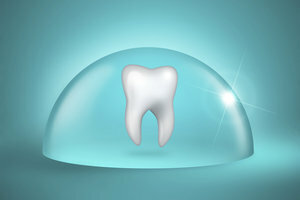Correctly state supplementary dental insurance in your tax return
If you as an insured person have decided to take out additional dental insurance, you can enter the costs for it in your tax return. However, the expenses are not taken into account in every case; this is only possible with low expenses for the basic health insurance.

Contributions to additional dental insurance are not always deductible
The expenses for this additional insurance are pension expenses in the context of the tax return. These, in turn, are among the special editions. Unlike the basic contribution to the regular one Health insurance, which serves as basic protection, the expenses for the voluntary supplementary insurance are not always taken into account in full or not at all.
This is because there is a maximum amount that can be deducted from pension expenses. For the year 2013, taxpayers could claim a maximum amount of 1,900 euros for expenses of this kind for tax purposes. For freelancers and self-employed, this amount was slightly higher at 2,800 euros. Twice the amount is available to married couples who are jointly assessed.
If this amount is exceeded with the contributions to the basic insurance, then no further special expenses can be taken into account. It should be noted that the contributions to basic health insurance always have priority. And with these contributions, the full scope of the deductible pension expenses is often exhausted or even exceeded. Because only the expenses for the basic protection can be stated above the maximum amount. Additional contributions for voluntary supplementary insurance can only be taken into account if there is a remaining amount.
An example: A taxpayer was able to state total expenses for basic health and long-term care insurance in the amount of 2,000 euros in the tax return. This amount can be taken into account in full, but it exceeds the applicable maximum amount. For this reason, no further insurance contributions can be taken into account for voluntary coverage for this taxpayer. If, on the other hand, the total expenditure for the basic insurance would be only 1,500 euros per year, then this taxpayer would still have the option of paying an amount of 400 euros with the tax return to specify. It would then be possible to use the costs for supplementary dental insurance or for other voluntary supplementary insurances and optional benefits.
However, it can't hurt to include the costs. If the amount of these special expenses has already been exhausted, the information will not be taken into account.
You can include many special expenses in your annual income tax return ...
The costs are entered in the pension expense annex in the tax return
Since the tax return for 2010 you can enter the expenses for the additional dental insurance in the annex pension expenses (status: March 2014).
If you are covered by statutory health insurance, enter the costs for the additional insurance in line 30 of the annex pension expenses.
Privately insured persons can also use the pension expense system, but you must then enter the expenses in line 35.
Enter the entire annual contribution for the corresponding year in the pension expense annex. However, you must deduct any reimbursements from this amount.
How helpful do you find this article?


